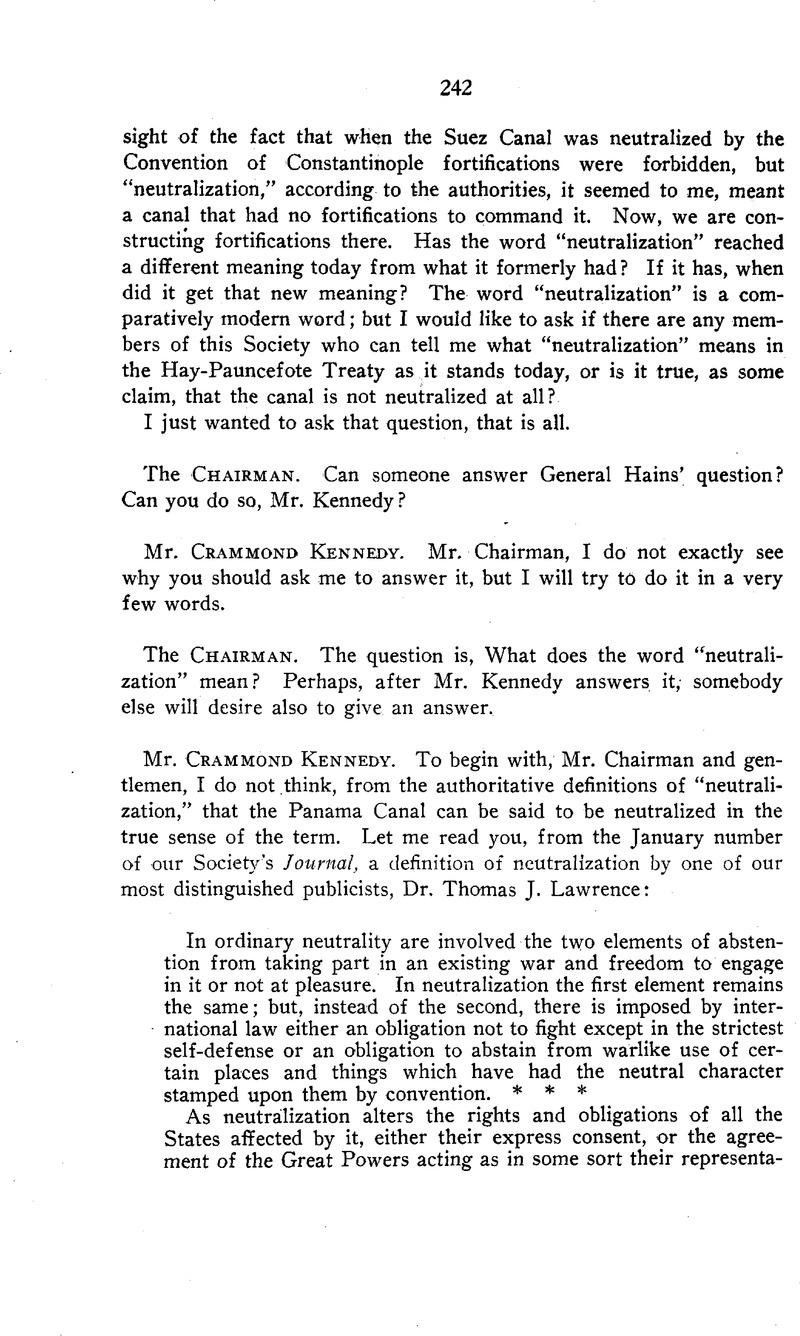No CrossRef data available.
Published online by Cambridge University Press: 27 February 2017

1 This amendment, which caused the rejection of the first Hay-Pauncefote Treaty by Great Britain, provided: "It is agreed, however, that none of the immediately foregoing conditions and stipulations in sections numbered one, two, three, four and five of this article [II] shall apply to measures which the United States may find it necessary to take for securing by its own forces the defense of the United States and the maintenance of public order."
2 “Neutralization and Equal Terms," American Journal of International Law. January, 1913, pp. 47, 48.